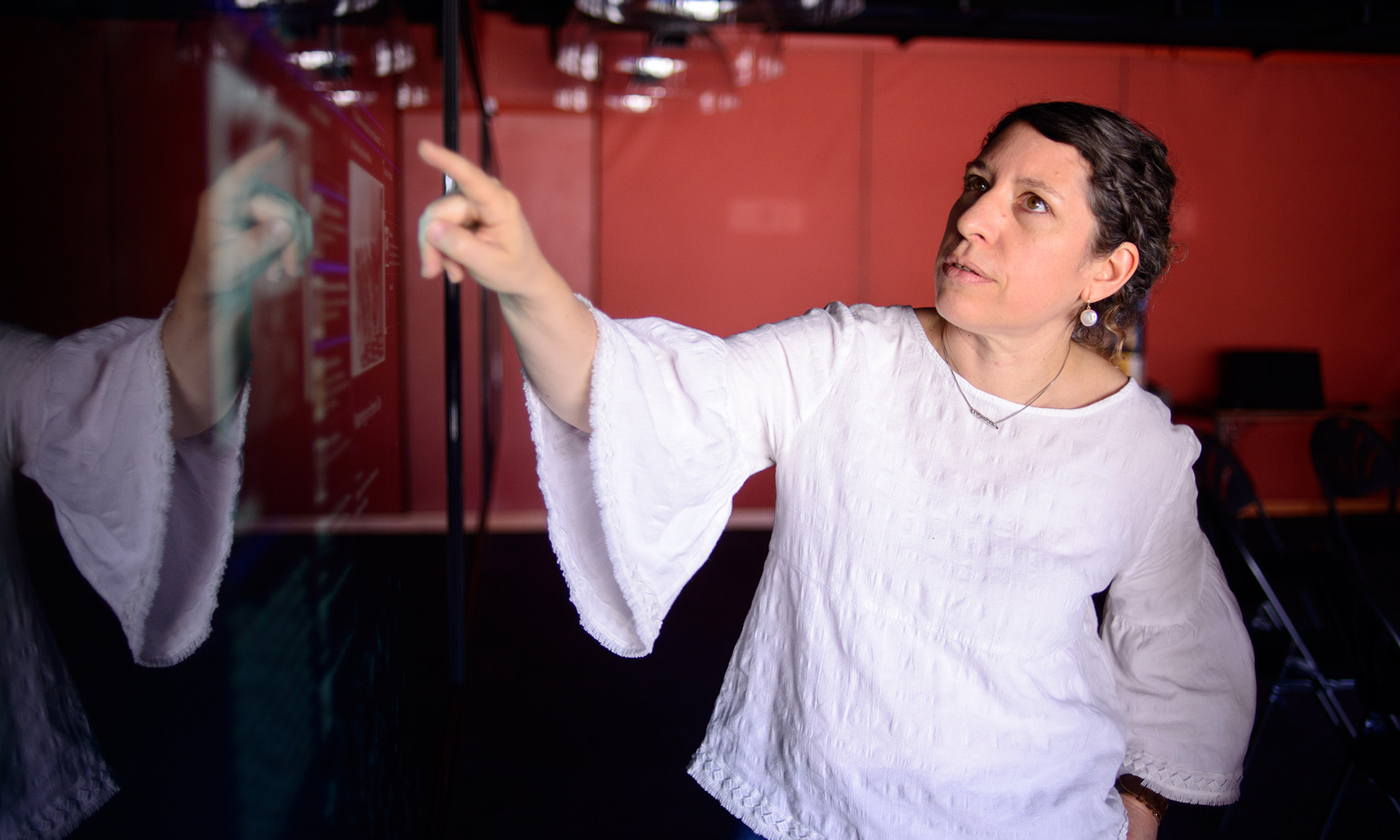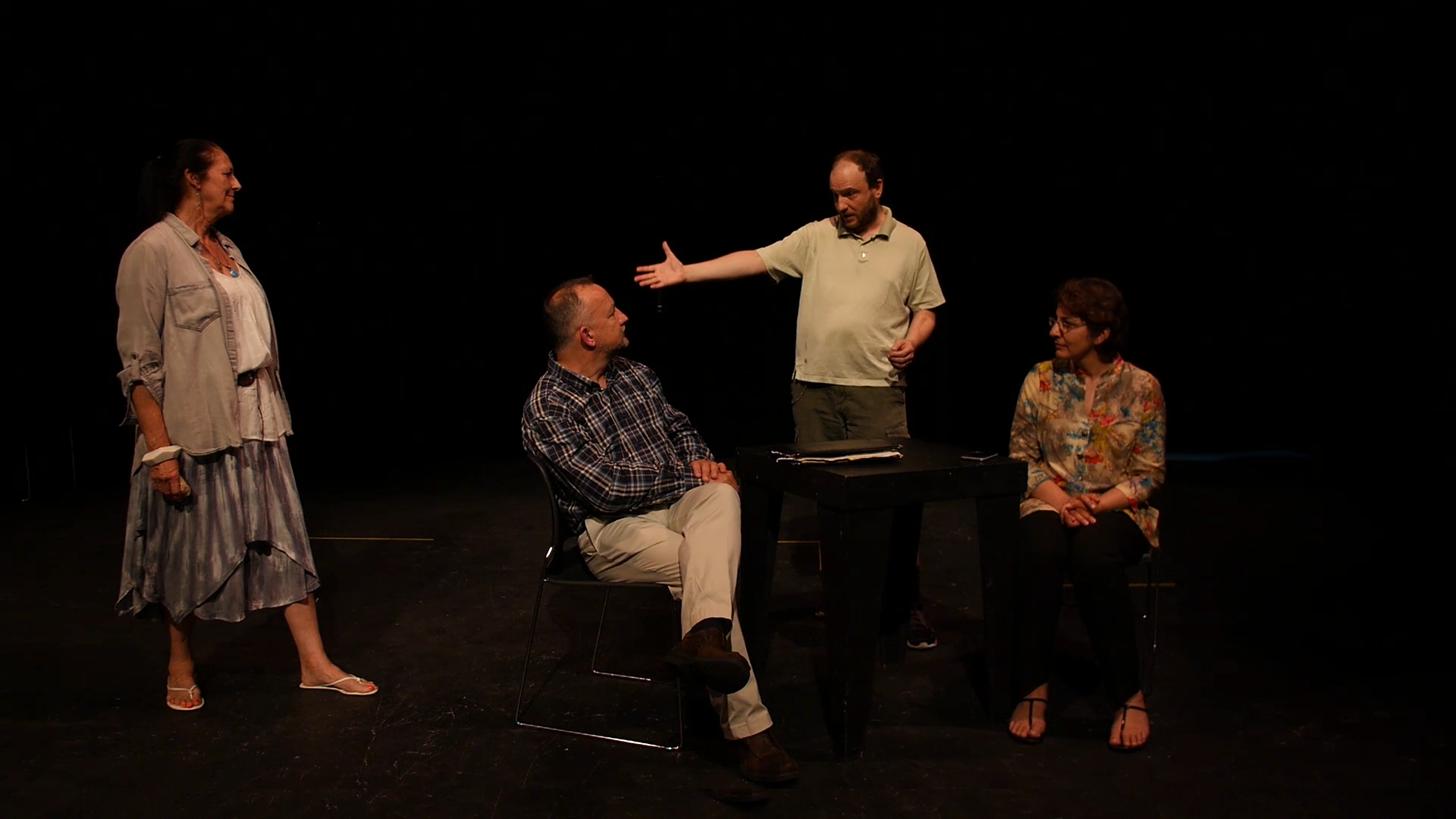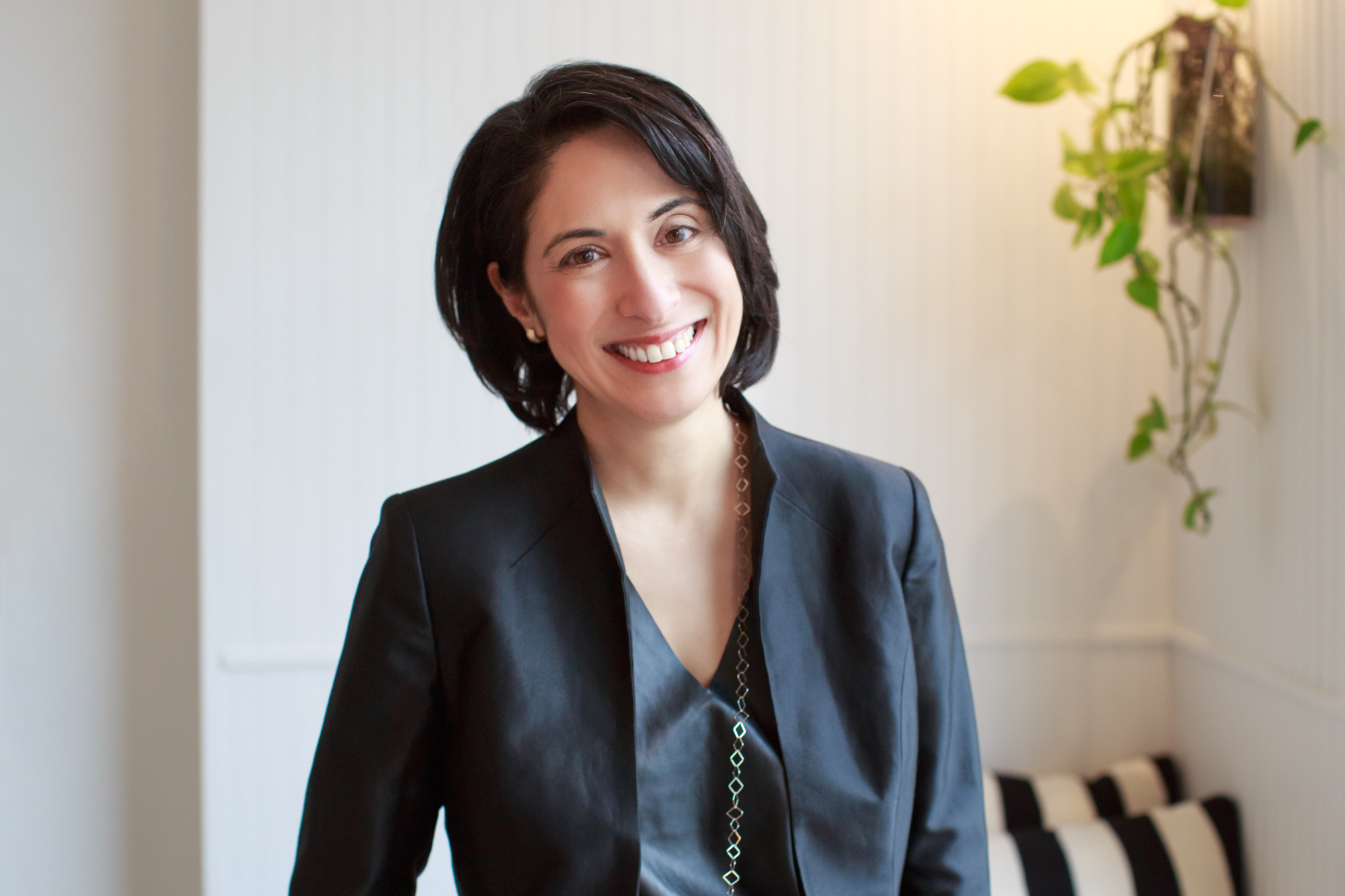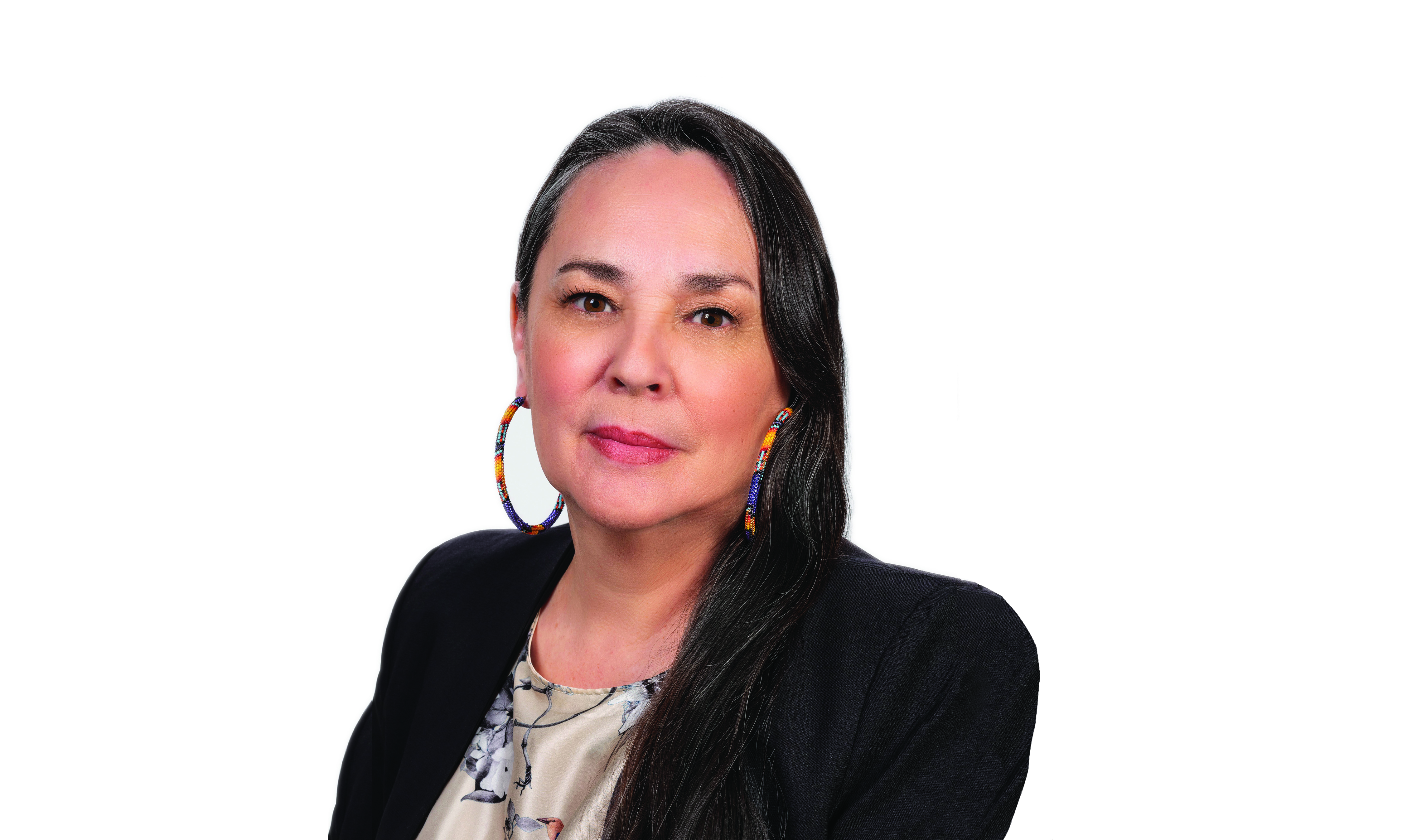

Dana Claxton got her first camera when she was sixteen. Since then, the Saskatchewan-born Hunkpapa Lakota (Sioux) artist has been making images that reclaim Indigenous narratives and investigate Indigenous identity, beauty, and gender.
Today, Claxton is an internationally celebrated multidisciplinary artist who heads UBC’s Department of Art History, Visual Art and Theory. In addition to film and photography, Claxton works in multi-media installations and performance art. Her work has been exhibited around the world, including at the Museum of Modern Art in New York, Sundance Film Festival, and the National Gallery of Canada. Last fall, the Vancouver Art Gallery profiled her thirty-year career in a retrospective exhibit: “Dana Claxton: Fringing the Cube.”
“The images we make matter,” says Claxton, who hopes her art sheds light on colonialism and contributes to what she terms decolonial literacy. “With my own teaching and art making, I bring an Indigenous presence into everything I do — to the gallery space, the classroom and the realm of pedagogy here at Congress.”
We spoke to Claxton about the role of art in social change, the meaning of decolonial literacy, and what she’s looking forward to at Congress 2019.
Dana Claxton’s 2019 Congress Events
- Creating New Decolonial Literacies: Art as Pedagogy and Artist as Teacher (Meet Beau Dick)
For years, Indigenous peoples have had to learn to be literate in the ways of the dominant culture, acquiring new languages and ideologies as their own were eroded and suppressed. Through Meet Beau Dick: Maker of Monsters, we have the opportunity to swing the pendulum the other way, to become literate in his world, language and culture, creating a potential for a hybrid literacy, a decolonial literacy, that is informed by both epistemologies. Please join us for a screening of this important film, followed by a panel discussion featuring artist Dana Claxton, artist Linnea Dick, and film producer LaTiesha Fazakas, who will be addressing the question of how art functions to inform decolonial literacy.
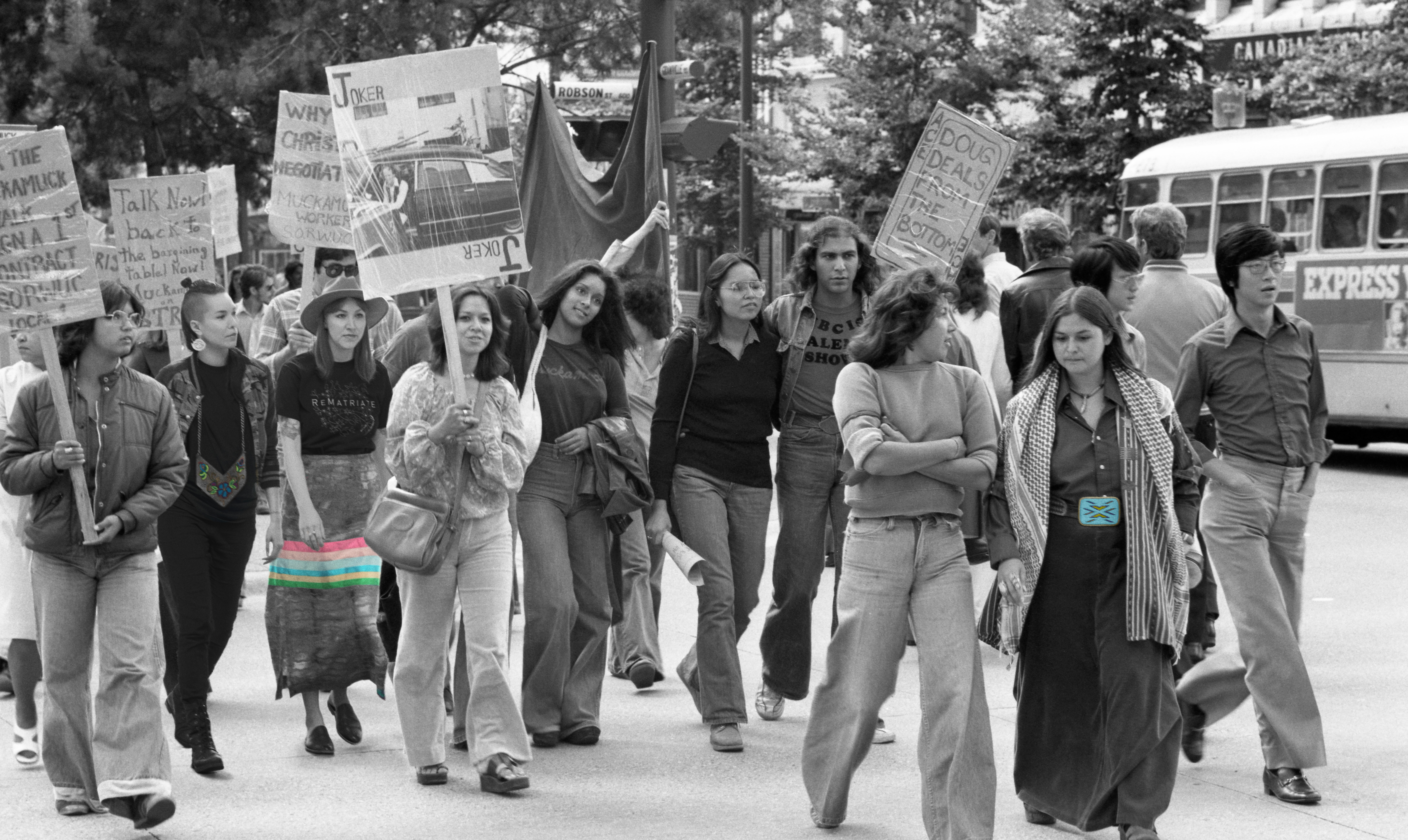

Image from the ReMatriate Collective (created in 2015) – an Indigenous women’s art collective, that uses social media to empower and connect Indigenous peoples, particularly women, through art interventions.
Your panel discussion at Congress 2019 asks how art can inform decolonial literacy. What do you mean by decolonial literacy?
For me, decolonial has many meanings. I think it’s about being able to identify what the colonial was, and what it was doing. My position is that the colonial did an incredible amount of harm — not only to Indigenous people, but to water, to land, and as a result to non-Indigenous people as well.
Everybody needs to think about what decolonial is to them — it’s not just an Indigenous experience. Settler nations, settler descendants, newcomers — whatever terms people are using — all of them have been impacted by colonial policies. People are implicated in ways they might not even know through colonial structures. I often tell my students: I don’t want to know what your stereotype is, but think about what it is so you can identify it and ask how you learned it.
Colonialism has happened in many parts of the world, but Canada has its own unique brand. People don’t want to think about the G word: Genocide. To think that it’s happened in our beloved country where there is so much incredible freedom and people come from all over the world in search of this freedom, yet look at the brutality of our own history. It’s mind-boggling to me. Fortunately there are still people in the social justice movement trying to seek equality for people who have been oppressed and marginalized.
On one hand there are great strides of social justice for Indigenous people — being able to vote and having businesses on reserves, for example — but on the other hand we have the report on Missing and Murdered Indigenous Women and Girls that was just released. What does that say about what we’re all doing? How are Canadians listening? Decolonial literacy hopefully will take us to steps where we don’t have reports on murdered and missing Indigenous women.
How can art contribute to decolonial literacy?


What role do you hope your own art can play in effecting social change?
I hope it opens people’s hearts to different experiences that aren’t their own and to unpack decolonial literacy and colonial legacy. Indigenous people have been trying to explain what’s been going on for a long time, but people haven’t necessarily been alert and open to it. I’m very privileged as an artist and a professor – but I didn’t always have those privileges. My own family history inspires me and gives me the strength to do the work that’s needed. When your own family has been harmed, you question why, and you go from there.
Why were you drawn to art as a vehicle for challenging stereotypes and advancing social justice?
So I could express myself freely. Art has no boundaries. Art has no rules. It gives you the freedom to research and think about different ideas in unique ways. Just being creative was the natural place for me to be. I started out early on as a poet. I got my first camera when I was 16 so I was always taking pictures. And with filmmaking, it took me a while to realise it could be a valuable tool for storytelling, instead of just wanting to be a filmmaker and director for the sake of it.
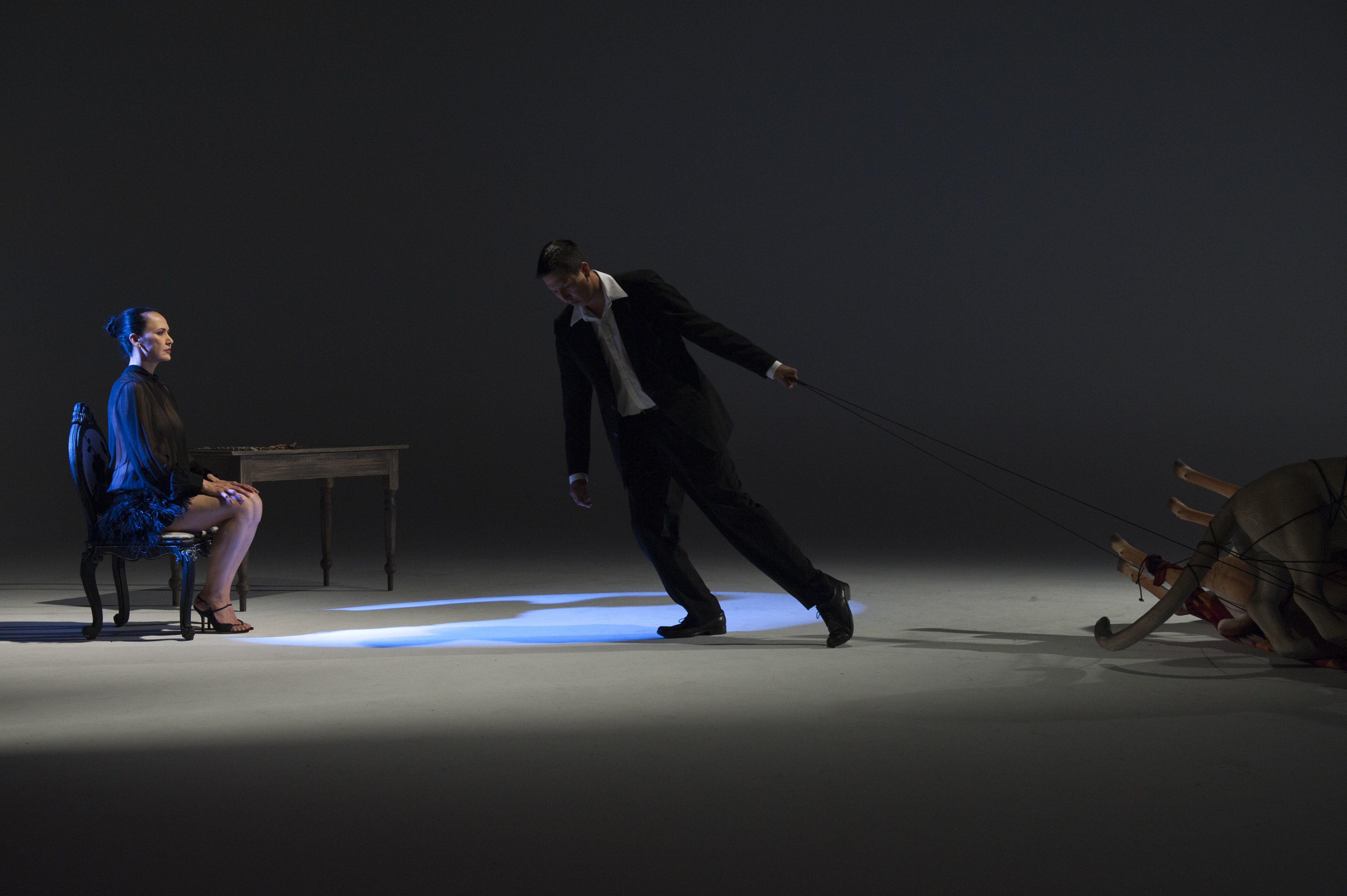

A still from Dana Claxton’s film ‘He Who Dreams’.
The theme for Congress 2019 is “Circles of Conversation”. As somebody who works on questions of representation and narrative in multiple mediums how does this theme resonate for you?
We have a saying in Lakota – Mitákuye Oyás’iŋ. It means “everything is related.” It also gets translated as “All My Relations.” In many Indigenous languages there is the philosophy of life that everything is related. So “Circles of Conversation” made me think about this idea. What we do at UBC is related to what happens in society. As educators and scholars, what we bring to the world is part of that circle. Congress is a Canadian event, and as educators, what we teach affects everything.
What’s on your list of “must-see” events / talks / performances at Congress 2019?
I’m excited about seeing ...we can know more than we can tell… at the AHVA gallery, curated by one of my colleagues Christine D’Onofrio. And also the Stan Douglas talk “Impossible Pictures” at Frederic Wood Theatre on June 6.
